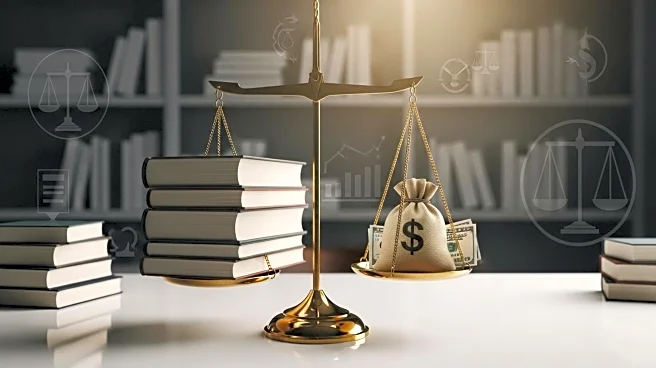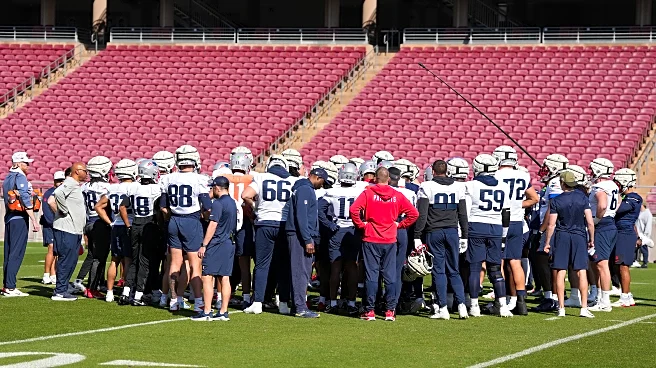What is the story about?
What's Happening?
Anthropic, an AI company, has agreed to a $1.5 billion settlement to compensate authors whose works were used without permission to train its models. The settlement follows a lawsuit filed by authors Andrea Bartz, Charles Graeber, and Kirk Wallace Johnson, who accused Anthropic of illegally using their works. The company admitted to digitizing millions of physical books and downloading pirated books from sources like Library Genesis. While Anthropic won part of the case by arguing that scanning books is fair use, it was found to have broken the law by ingesting pirated books. The settlement values each pirated book at $3,000 and includes the destruction of pirated works.
Why It's Important?
This settlement is significant as it represents the largest copyright recovery claim in the U.S. and sets a precedent for AI companies regarding the use of pirated content. It highlights the growing legal challenges AI companies face as they use copyrighted materials for training purposes. The settlement may influence similar lawsuits against other AI companies like OpenAI and Perplexity AI, potentially leading to more legal and financial accountability in the industry. It underscores the importance of respecting intellectual property rights in the digital age.
What's Next?
The court is expected to approve the settlement, which is a formality in most cases. This decision could pave the way for more AI companies to establish funds to handle copyright claims. The industry might see an increase in licensing agreements to ensure authors are compensated for the use of their works. As AI continues to evolve, companies may need to navigate complex legal landscapes to avoid similar lawsuits.
Beyond the Headlines
The settlement raises ethical questions about the use of copyrighted materials in AI training. It challenges the notion of fair use in the context of transformative works created by AI. The case may lead to broader discussions on the balance between innovation and intellectual property rights, influencing future legislation and industry standards.
















